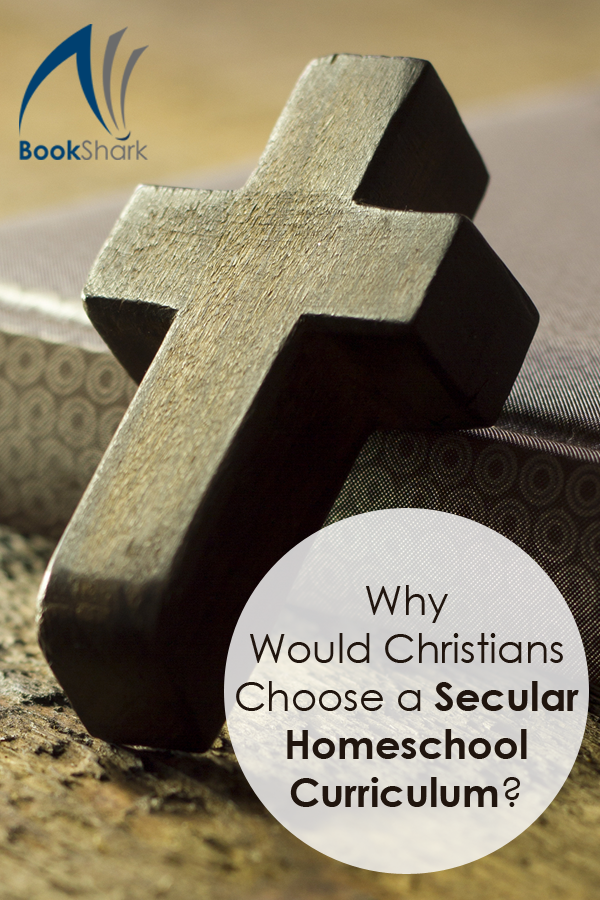




Why Would Christians Choose a Secular Homeschool Curriculum?

Homeschool curriculum shopping can be challenging when searching for a secular curriculum. Curriculum providers tend to market to the conservative Christian homeschooler, so there are a lot of options of that flavor while secular and faith-neutral choices are fewer.
Even homeschoolers who do homeschool for religious reasons don’t necessarily want a Christian homeschool curriculum for several reasons.
They Want to Keep Academics and Bible Separate
Many Christian families want to use materials that are not religious because their goal is to teach religion separately from academics. Many Christian publishers weave scripture and theology throughout their curriculum. For those who choose to keep academics and faith separate, this integration is not welcome.
Others may want to dive deeper into a certain part of the Bible or study their faith according to their own plan and not based on a timeline set in a curriculum.

Their Beliefs Are Different from Mainstream Christianity
Christians don’t fit one mold. Under the Christian umbrella, there are myriad different denominations, beliefs, values, and doctrines. There are Christians who are young earth and Christians who are old earth. Some Christians agree with the belief that America was founded on Christianity. Others question parts of that story while some believe none of it. This means a traditional Christian textbook may not line up with every Christian’s beliefs. Those whose views are different than mainstream Christianity may have a difficult time with traditional Christian publishers.
They Believe Christian Materials are Too Biased
A popular argument I have heard from some who have used Christian materials and switched to secular was that the material was too biased. While they may want to teach God’s word and a worldview that goes with that, they want to do it in a respectful way, while exposing their children to other beliefs and traditions.
Many Christian homeschool curriculums make this difficult. They may bring up an opposing view and bluntly say it’s wrong, without explaining why or without using a tolerant approach. Other Christian curriculums do not mention opposing views at all, totally shielding kids from anything that doesn’t fit the publisher’s particular worldview.
Parents who prefer to teach they whys behind other beliefs and want to study them more in depth may want a secular curriculum with a more neutral perspective.
They Use State Funds for Curriculum Purchases
In some areas, homeschoolers can use state monies to purchase homeschool curriculum. But that money can’t be used on materials with religious perspectives. So those families need to find a quality, secular homeschool program even though they may have strong religious convictions or even choose to homeschool because of those beliefs.
Because homeschoolers (both Christian and not) do not fit a mold, more and more secular curriculums are being published. This means that Christians who want to use a secular curriculum will have more options than ever before.
Regardless of which curriculum you use, you will want to be aware of what it teaches and how it relates to you and your family’s beliefs. Not all Christian curriculums will include Bible integration. Not all secular curriculums include solely evolutionary content. Study the material, and find what works best for you and your family regardless of your religion.

About the Author
Misty Bailey is a homeschool mom of three and has been homeschooling for over 5 years. You can read about her homeschool journey and more on her blog, Joy in the Journey.